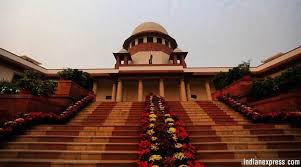Remanding the matter to the Settlement Commission to determine afresh, the question as to immunity from levy of penalty and prosecution, was affirmed and the aforesaid Writ Appeal filed by the appellant herein, was dismissed. (Para 1)
In other words, the appellant treated such leases as loans granted to the “purported” lessees to purchase assets. In such cases, the ownership of the assets is vested with the lessees. However, the appellant claimed depreciation on those assets under Section 32 of the Income Tax Act, 1961 (hereinafter referred to as “the Act” for the sake of convenience) though the appellant was not the owner of the assets for the purpose of the said transactions. (Para 2.1)
The Assessing Officer also passed a penalty order dated 14.06.2000 levying a penalty under Section 271 (1)(c) of the Act after being satisfied that the appellant had concealed its income as regards lease rental. (Para 2.2)
Before the Settlement Commission, the Respondents-Revenue raised a preliminary objection contending that the appellant did not fulfil the qualifying criteria as contemplated under Section 245C(1) and hence, the application filed by the appellant was not maintainable (Para 2.5)
After considering the contentions of both parties, the Settlement Commission passed an Order dated 11.12.2000 entertaining the application filed by the appellant under Section 245C and rejecting the preliminary objections raised by the Revenue. The Settlement Commission allowed the application filed by the appellant by way of a speaking order and permitted the appellant to pursue its claim under Section 245D. Thus, the application was proceeded further under Section 245D (1) of the Act. (Para 2.6)
As a result of the Order dated 18.08.2005 passed by the High Court of Karnataka, the Settlement Commission heard both parties on merits as well as on the issue of maintainability. The Settlement Commission upheld the maintainability of the application filed by the appellant and passed an Order dated 04.3.2008 under Sections 245D(1) and 245D(4), determining the additional income at Rs.196,36,06,201/-. As regards the issue of immunity from penalty and prosecution, the Commission (Para 2.9)
We are of the view that the learned Single Judge of the High Court was not right in holding that the reasoning of the Settlement Commission was vague, unsound and contrary to established principles. Division Bench was also not justified in affirming such view of the learned Single Judge. The Commission, in our view, adequately applied its mind to the circumstances of the case, as well as to the relevant law and accordingly exercised its discretion to proceed with the application for settlement and grant immunity to the assessee from penalty and prosecution. The Order of the Commission dated 04.03.2008 did not suffer from such infirmity as would warrant interference by the High Court, by passing an order of remand. (Para 7.5)
The High Court ought not to have sat in appeal as to the sufficiency of the material and particulars placed before the Commission, based on which the Commission proceeded to grant immunity from prosecution and penalty as contemplated under Section 245H of the Act. (Para 9)
We are however of the view that in the present case, the Commission rightly exercised its discretion under Section 245H having regard to the bona fide conduct of the assessee of offering additional income for tax, apart from the income disclosed in the return of income. (Para 12)
We are of the view that the Order of the Settlement Commission dated 04.03.2008 was based on a correct appreciation of the law, in light of the facts of the case and the High Court ought not to have interfered with the same. Therefore, the judgment dated 06.07.2012, passed by the High Court of Karnataka at Bangalore in Writ Appeal No. 2458 of 2010 whereby the judgment of the learned Single Judge dated 20.05.2010, passed in Writ Petition No. 12239 of 2008, remanding the matter to the Settlement Commission to determine afresh, the question as to immunity from levy of penalty and prosecution was affirmed, is hereby set aside. (Para 14)
SUPREME COURT OF INDIA
2023 STPL(Web) 296 SC
[2023 INSC 855]
Kotak Mahindra Bank Limited Vs. Commissioner Of Income Tax Bangalore And Anr.
Civil Appeal No. 9720 of 2014-Decided on 25-9-2023
https://stpllaw.in/wp-content/uploads/2023/10/2023-STPLWeb-296-SC.pdf







